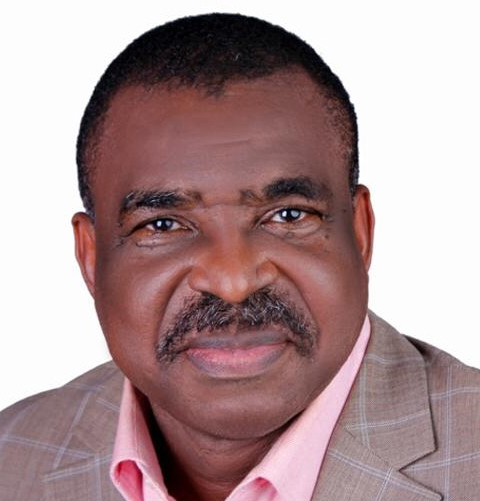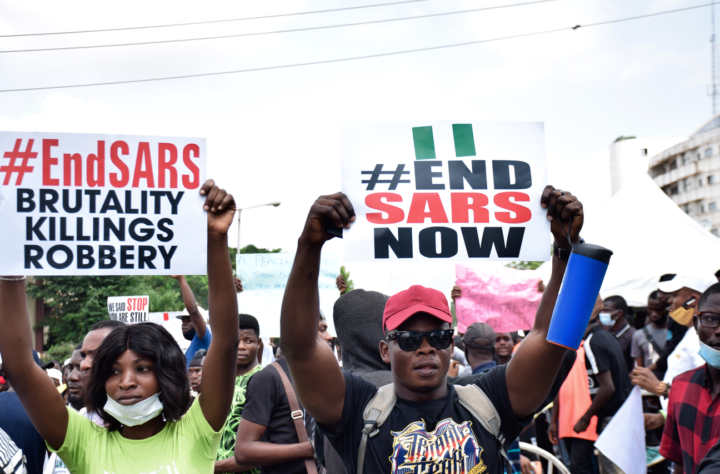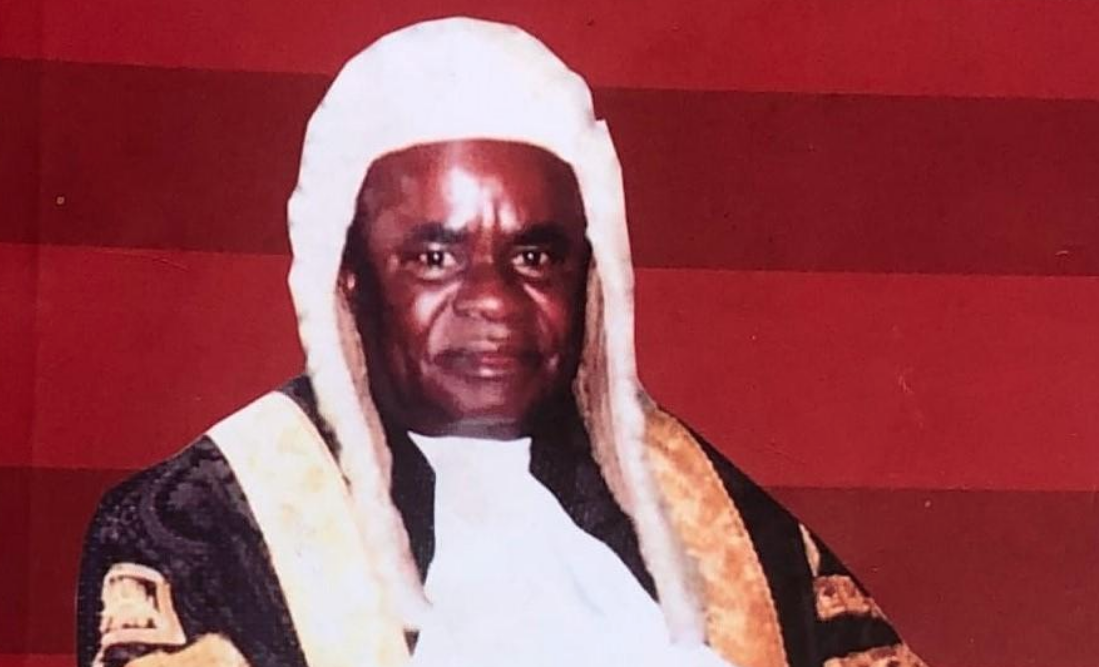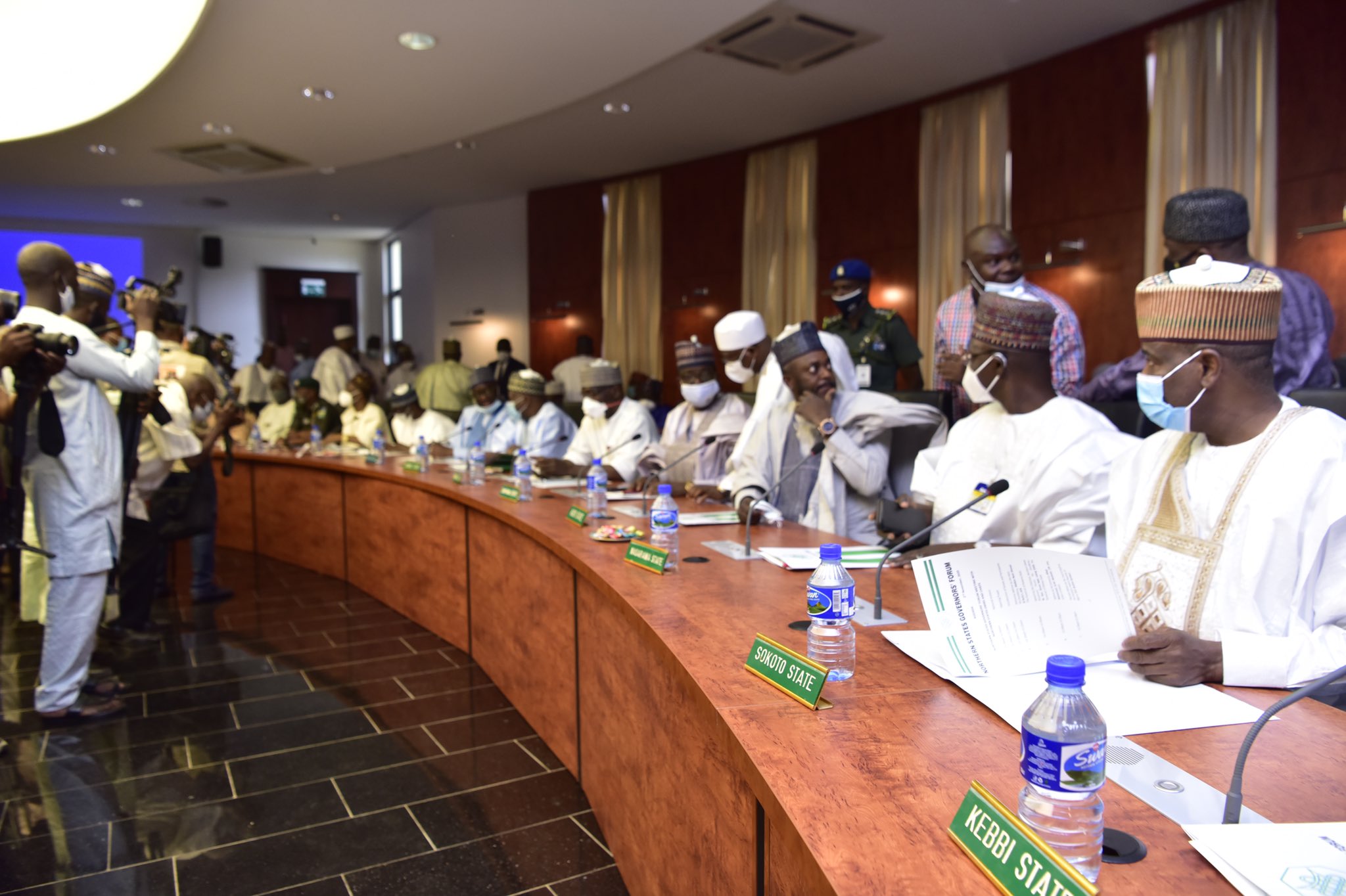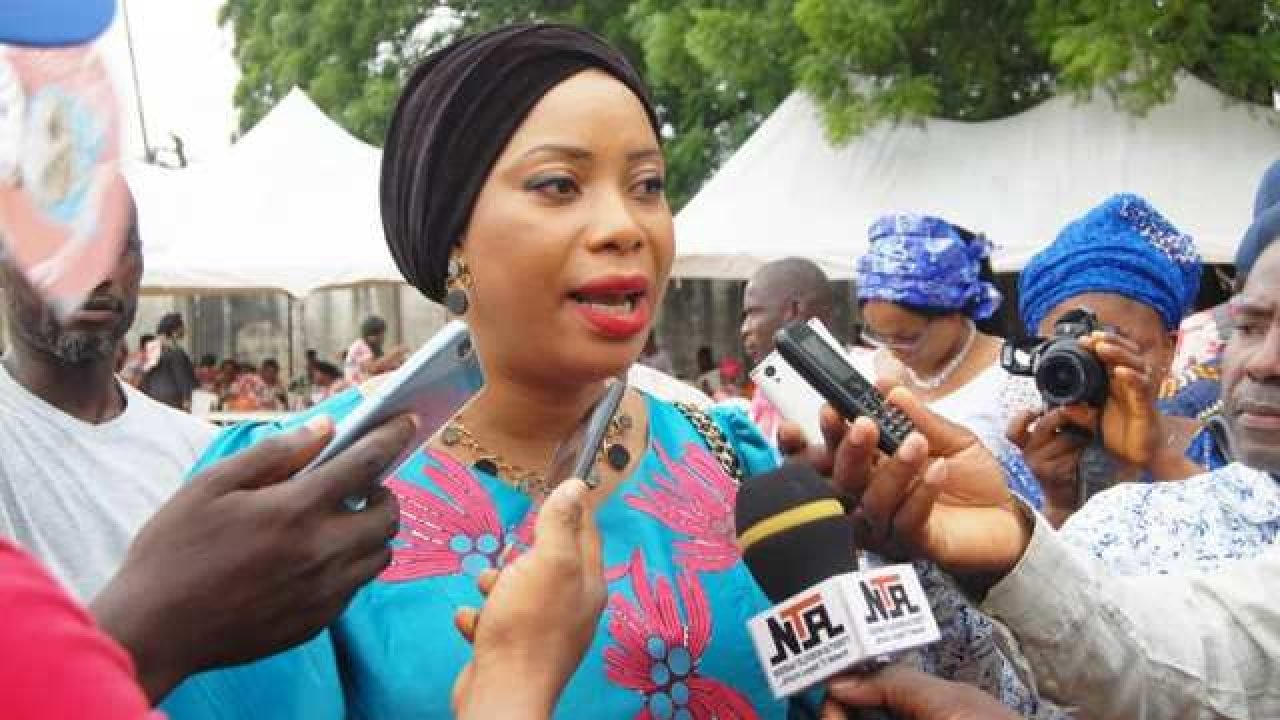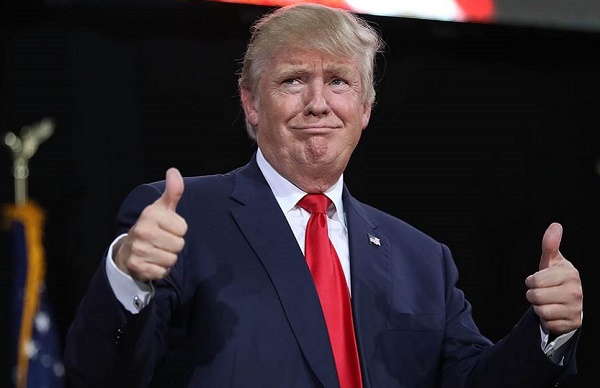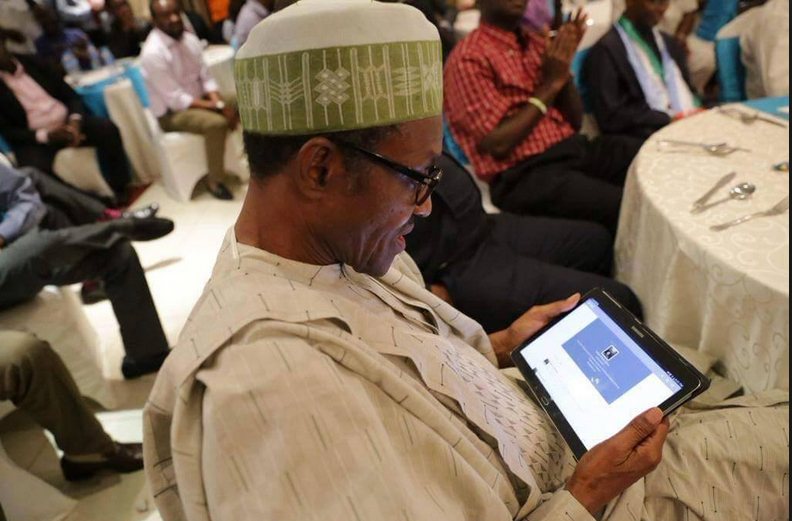Nothing illustrates the constructive and equally destructive capacity of our youths more than the fallouts of the #EndSARS protests. And education makes the difference between the creatively and positively charged ones and the destructively and the negatively charged ones.
Allow me to explain:
The educated ones are the highly organized protesters that decided to take their frustrations with the killer, SARS (which stands for Special Anti Fraud Squad) out to the streets via peaceful protest march to attract the attention and empathy of the authorities; and their destructive counterparts are the illiterate ones that, after twelve days, seized the initiative from the educated ones to vent their spleen on the society, who they are holding responsible for their plight. I have always been bewildered by the aptness of the wisecrack that was imbued in me as child by my parents via constant verbalization. It goes thus:
“The difference between the doctor in the hospital and the cleaner is education”
Advertisement
I mean nothing illustrates the conventional wisdom above, more than the incident of EndSARS protesters — as exemplified by the educated who were so organized to raise their own money, feed protesters, provide health care emergencies to the injured, offer philanthropic help to the indigent-prostatic legs for a one-legged lady and working capital for a woman roasting corn on the roadside, repair damaged vehicles and hire bodyguards to prevent the ruffians from infiltrating their ranks with the aim of hijacking the protests.
On the flip side was the violent and illiterate rioters. The agenda of this category was to destroy every good thing on their path as locust worms would do on a farm or be as destructive and disruptive as the pandemic like coronavirus, Ebola and SARS-like virus would harm the human body and destroy life.
The dilemma is that both categories of youths are our children and future leaders.
Advertisement
In my earlier piece on the calamity of #EndSARS, published on the 19th of October in mainstream media and online platforms titled “Nigeria, A President, His Glory And Violent Policing”, l dwelt briefly on how the savings from the end of the economically debilitating fuel subsidies regime that gulped trillions of naira annually can be converted into free education policy that would give every Nigerian access to education up to secondary school level. It needs no reemphasis that education which is a production input for development remains the flagship of the numerous achievements of the late sage, Obafemi Awolowo’s public service record. Investing in education in the form of free education is quite unlike granting subsidy for consumption, which subsidizing petroleum products importation is all about, and therefore a wasteful exercise that has reportedly been gulping an average of about a trillion naira annually in the past 20 years. Let’s just imagine how many kids and youths would have been educated with twenty (20) trillion naira in the past twenty years of the return of multi-party democracy in Nigeria.
As most of us are already aware, education is the main reason Indians, or people of Indian origin, are more in the number of people serving as chief executive officers, CEOs, chief technical officers, CTOs or chief operating officers, COOs in Fortune 500 companies around the world.
The Microsoft founder, Bill Gates has counseled the Nigerian government and Nigerians on how we can harness our enormous human capital potentials based on the survey by the Goalkeeper Report indicating that about 60% of our population is comprised of youths demography. But most of our youth remain uneducated and unskilled. And it’s needless detaining or boring us with the statistics of the alarming number of out of school children in our country, or the reasons for such an avoidable malady.
However, suffice it to say that it is the negative aspects of the youth bulge that bears down on us as a nation, whenever violence is unleashed on society by members of that demography who are on the brigands’ side of the equation. At the same time, it is the positive aspects facilitated by education that is the reason, amongst others, the pair of Ezra Olubi and Shola Akinlade, Nigerian duo who are educated youths, faced with similar hindrances in life like all the other youths in Nigeria, yet they were able to be the founders of PAYSTACK -a unique payment system which was recently acquired for a whopping $200m by a USA based firm, STRIPE.
Advertisement
I would argue that what has been laid bare by the #EndSARS youth protests is that the much talked about youth bulge is not hype.
It is real and it is like a knife that cuts both ways. While the positive manifestations are far and in between — like the emergence of the founders of PAYSTACK that has held Nigeria aloft in the world of technology, l actually read about the deal in AngelList, a weekly software engineering high-tech magazine out of San Francisco, California, USA; the negative aspects of the youth bulge also manifests in the activities of the ‘nefarious ambassadors’ such as those who ran rampage across Nigeria with animus intentions of breaking into jails to release prisoners, burn down police stations, kill officers and men of the police force, and cart away their weapons as well as set ablaze court houses with the intention of destroying their criminal records.
What the above narrative suggests is that in the milieu of anomie triggered by #EndSARS protests, even the destructions that happened had a pattern. The corollary to the aforementioned hardened criminal elements are the very hungry folks who just wanted food and had to break into identified warehouses to take away without authorization, the CA-COVID and COVID-19 palliatives that they felt (wrongly or rightly ) belong to them. This latter group comprises of the uneducated or half-educated, who are left behind by a society that made no provision for those who failed to get into the development train of the 21st century. Worse still, owing to the negative effect of coronavirus on our economy, whereby foreign exchange treasury is fast depleting; and it is even struggling to provide livelihood for the well educated as reflected by the millions of university-educated but unemployed youths; how can such a fragile economy that’s bucking under the weight of huge public spending and dwindling income accommodate the uneducated, unskilled, and therefore unproductive youths now threatening the peace of our country?
The driving force behind religious insurgency, terrorism and banditry in the north also being perpetrated by the youths can not be distanced or divorced from the challenge of lack of education and skill by the burgeoning youth population out there in the northern parts of our country.
Advertisement
The last category of youths earlier profiled might have been partnering with the first group — well educated and peaceful protesters who were providing food for the less privileged with the funds raised. And I’m assuming that, when they were left on the streets by the knights in shining armor (which is how l like to characterize the well educated peaceful protesters) to fend for themselves in the usual street life that they know best, they were compelled to join those with the nihilist agenda that seized the legitimate #EndSARS protests and under its cover, started perpetuating heinous crimes.
From the foregoing, the events of the past couple of weeks validate the aphorism: There is a method in the madness.
Advertisement
Another striking thing is that generation Z is certainly not lazy, but ingenious. They can actually be constituted into a critical national asset if the government creates an enabling environment for them to bloom.
Bill Gate’s proposition on how to harness the potentials of our impressive youth population comes to mind and it is crying for adoption by the authorities as it has been established that our youths are potentially priceless national assets.
Advertisement
In the heat of the anomie, it was alleged that some of the youths had hacked into the CBN, NNPC, and other government agencies databases. Of course, the claim was denied by the organizations which are agencies of govt.
And I’ve read some social media posts whereby some of the youths challenged the government to award to them the contract for a new information technology infrastructure being offered at a huge cost to one of the established international contractors. In the social media posts, the youths boasted that they could do the job for about 10% ( or something to that effect ) of the amount that it is being awarded by to a foreign firm, and government can apply the money saved from the bloated contract towards improving a lot of men and women in uniform that they reckon are not being well looked after by the system. How noble!
Advertisement
Being aware that the creative and enterprising capacity of generation Z (another word for youths) is infinitum, l don’t believe that the boast about hacking into the database of major institutions of government is an empty one. After all, a 20-year-old youth in Florida, USA recently hacked into a major USA asset.
I’m so bullish about the chutzpah of our youths that l urge the authorities to give them a chance to participate in governance, as public servants and also compete in bidding for government business like other contractors.
There are lots of youthpreneurs in our society who are bursting at the seams with good ideas. But they have no access to good contracts, credit, or mentorship. The Tony Elumelu Foundation (TEF), youth entrepreneurship, and mentorship initiative is good. But it’s like a drop of water in an ocean. Our country needs at least 100 such programs to make any reasonable impact.
Before the PAYSTACK youth entrepreneurs, there was Systemspecs, established by John Obaro. That indigenous firm developed Remita — an app for payment into Treasury Single Account (TSA).
Hitherto, so much financial capital was exported abroad as payment for apps, especially by foreign banks. Recall the controversy over the allegation of illegal export of capital by a bank with South African Headquarters.
Hopefully, other African countries would adopt PAYSTACK, Remita, and other softwares created in Nigeria.
At this critical period in time that our country is in dire need for diversification from the mono-product of oil /gas as a source of foreign income, earnings from products like the apps mentioned above when exported, would certainly not make Nigeria another Silicon Valley, in California or Indian equivalent in Bangalore. But it would at least be another source of non-oil income which hitherto has been limited to the export of raw and unprocessed agricultural products, such as sesame seed, cashew nuts as well as precious gems like gold etc.
With respect to converting the uneducated, destructive, and disruptive half of our youths to productive human capital and national assets that they should be, my candid advice to government is to take a second look at Bill Gates’s proposal with respect to how the huge potentials of our unique youths demography can be positively harnessed.
The Microsoft founder had this to say about governments in Africa and their lack of focus on youths development :
“We wish they would also recognise young people’s enormous potential to drive economic growth. They are the activists, innovators, leaders, and workers of the future. Investing in young people’s health and education is the best way for a country to unlock productivity and innovation, cut poverty, create opportunities, and generate prosperity.
“Across sub-Saharan Africa, these investments could increase the size of the economy by nearly 90 per cent by 2050, making it much more likely that the poorest countries can break through their stagnation and follow the path of China and India. There are blueprints for investing successfully in human capital,”.
Mr Gates who is also the chairman of Bill and Melinda Gates foundation concluded by pointing out that if the countries and development partners invest more in human capital today, “young people wearing sandals in the poorest, fastest-growing countries will be riding bicycles tomorrow—and inventing cheaper, cleaner, safer cars next week and that’s good for everyone.”
We have seen such a phenomenon evolve in China and the surrounding countries like Vietnam. And I’m assuming that Mr Gates who is the second wealthiest man in the world and the promoter of Goalkeepers Report that conducted the research which produced the data referenced earlier has the blueprint for unlocking the potentials of our youths. The plan would be such that may have the capacity and ability to pull unskilled youths from the path of destructive tendencies to the trajectory of wealth and economy builders epitomized by the founders of PAYSTACK amongst many other youth entrepreneurs that abound in Nigeria but have remained unsung.
Just the other day, l saw in social media some uneducated youths who had designed with scrap metal, a prototype of an electricity power grid, and another one who similarly used scrap metal to design a bulldozer or payloader.
These two youths (between 10-20 years old) that l saw in the LinkedIn platform designed the systems with raw talent. Many of such youths with creative ingenuity abound in our clime and they need to be identified via creativity contests. Just as Most Beautiful Girl ln Nigeria pageant and Big Brother Nigeria reality shows celebrate the human body and foibles, technological or technical talent hunt reality shows can also be promoted, after which the winners can be put in an academy to blossom. I believe it is such people that President Buhari’s N75b youths intervention funds mentioned in his broadcast in the course of the #EndSARS protests are targeting.
It is commendable that, apart from accepting the 5 points demand of #EndSARS protests, whose implementation commenced with the disbandment of SARS, several committees have been set up at both federal and state government levels to review what led to the protests with a view to coming up with the panacea to the malaise of the youths in our society.
Amongst such measures is the maiden National Youth Day programme with the theme “Invest in the youth, secure our future” held at the Presidential Villa, Abuja last Sunday.
In a statement from the presidency titled “President Buhari to Nigeria Youths: End Street Protests, Dialogue with Government on Police Reforms,” Mr President was quoted as stating that after the protests, the authorities want to hear “concrete and practical ideas“ from the youths.
As if to put its money where its mouth is, the Nigerian Youths Investments Funds has been operationalized by the government which has put up the N75b promised by Mr President.
As part of the Youth National Day event, a 20-year-old Usman Dalhatu who is a student of engineering at ABU, who built a ventilator to aid breathing for patients unable to do so on their own, was recognized. So also was Intissar Bashir Kurfi, Managing Partner, Ifrique Eco Solutions, a green architect and environmentalist.
According to the report from the presidency, Kurfi, in her late twenties, had set up a factory for upcycling plastic waste in Abuja. The factory would upcycle Low-Density Polyethylene (LDPE) such as pure water sachets, plastic bottles, polythene bags, and others into Interlocking Tiles.
That gesture of support to our youths by the government has been long overdue, and therefore a commendable effort by the authorities to move issues about the youths from the back burner into the so-called NEXT LEVEL agenda.
As l earlier mentioned, l hope the ostensibly well-intentioned initiative to bring our youths into the development loop will be democratically spread because l did not see the youths that designed the prototypes of the electricity power grid and the bulldozer, earlier highlighted, in the list of those recognized.
In light of the above, the authorities must do all they can to find those naturally skilled youths with a view to nurturing and harnessing their raw talent for the greater good of our country.
The Goalkeeper Report promoted by Bill Gates indicates that about 60% of our population is comprised of youths compared to 27% ratio of the youths in Europe, so on that score, the government is on the right path with the N75b bet on youth entrepreneurs.
But all the robust and lofty social safety net measures listed by President Buhari in his broadcast after the shooting of protesting youths catastrophe at Lekki toll gate on 20.10.2020, need to be well-coordinated and measured from time-to-time via independent audits instituted by the authorities to determine the effectiveness and impact. Given the sordid outcome of the distribution of the Covid-19 palliatives which failed to reach the grassroots people for optimum effect, the government can not be too cautious.
After all the robust initiatives and efforts to empower the youths as referenced above might have succeeded in putting the majority of our youths on even keel, those left behind must be the indolent ones.
To be fair, it is bound to be so, as it is part of the existential realities of life in even the advanced and industrialized societies.
For such a category, stern policies of reining them in by law enforcement agencies would have to be instituted.
And War Against Indiscipline which was a hallmark of President Buhari’s reign as head of state — 1983-85 — may need to be resurrected with enforcement approach rejigged from the draconian military jackboot style to being in conformity with a democratic ethos as reflected by respect for rule of law and due process in consonance with the present democratic dispensation.
It may not be termed War Against indiscipline (WAI) but War Against Corruption (WAC).
This tried and tested policy which is more or less akin to citizen policing may prove to be more efficacious than all the paraphernalia of anti-corruption agencies established to fight the systemic epidemic of corruption such as the EFCC, ICPC, PACAC by the government in the past few decades.
Sometimes, old wine in a new bottle could be a better elixir than new-fangled new wine in new bottles. You know how some old model cars perform better than new models when put under stress test.
I believe WAC can help change Nigerian behavior for the better and restore traditional virtues which Buhari sought to achieve as military head of state. As a democratic president, his team particularly, information minister, Lai Mohamed has tried to resurrect the agenda by giving it a new toga “Change begins with me.”
It did not gain traction, so it failed woefully.
War Against Corruption (WAC), which should be focused on rooting out “dishonesty, indolence, unbridled corruption, and widespread impunity” in our country, so that Nigerians can “embrace daily introspection over their ‘moral’ conduct.” seem to me like a feasible option and better trajectory to follow.
I’m a little bit surprised to learn that some of our youths are still on the streets protesting and our policemen and women are also feeling lethargic and therefore loathsome of going back to work.
Although, the unfortunate incident of #EndSARS protests have had a devastating effect on society, but as very resilient people, Nigerians can try to see some good sides to the tragic events.
First of all, SARS has been disbanded to the relief of the youths and the very poor remuneration of men and women in the law enforcement community have also been brought to the front burner and President Buhari is believed to be speeding up the reforms necessary for increasing the remuneration of these frontline workers .
As the inspector general of police, Muhamed Adamu has reportedly stated, 22 gallant police officers were killed, with 205 police stations set on fire nationwide. By the same token, an undisclosed or yet to be determined number of youths have also lost their precious lives.
That’s a serious national calamity and because all lives matter, l believe all well-meaning Nigerians share the grief of members of the police force just as they are mourning the loss of the precious lives of the youths killed by SARS nationwide and particularly the unarmed ones felled by bullets from the army at Lekki Toll Gate on 20. 10. 2020 as alleged.
It is equally preposterous that some youths are still on the streets protesting or planning to regroup to do so again, so soon after and without waiting for the authorities to make good their promise. Just as it is equally improper that members of the police force are still bellicose, therefore resisting going back to their duties posts despite the pep talk given to them by the IGP who has reportedly urged them to go back to their duty and defend themselves.
Hopefully, the exaltation by the IGP would not be misinterpreted as directing the police to take vengeance against civilians.
The Governor of Lagos state, Babatunde Sanwo-Olu has also in a gesture of goodwill offered compensation to the families of slain police personnel, scholarships to their offsprings, and also repair the police patrol vehicles burnt. I recognize that all the kind gestures can’t replace the lives lost. But in one way or the other, sympathy and empathy, often help those in grief.
It may be recalled that following the unfortunate incident of terrorists bombing of the World Trade Center twin towers in New York, in September 2011, now famously referred to as 9/11, most of the first responders- firefighters, police, etc were killed in the second wave when another airplane crashed into the second tower of the building. Yes, they were hit hard by the tragedy. But after literarily licking their wounds, the first responders immediately went back to work.
Similarly, after the Black Lives Matter (BLM) protests that enveloped the USA a couple of months ago, in the wake of the police brutal killing of George Floyd, an unarmed black man, by a white policeman, the lives of policemen and women were endangered by protesters who went on a rampage burning down police patrol vehicles and hurting some of them. Although the policemen and women were first demoralized, they quickly returned to doing what they do best — to protect citizens. So there is strength in falling and rising immediately than tarrying or feeling crestfallen when struck or hit by tragedy.
Without further ado, the Nigerian policemen and women should go back to doing what they do best — without violence against civilians and with a resolve to shorn themselves of unbridled quest for bribe, which triggered the social upheaval.
Incidentally, an interesting aftermath of the #EndSARS protests is that most civil servants and all the other usual suspects in the bribe-taking enterprise in our country now think twice before accepting, when they are offered gratifications. The offers of bribe now are met with “Thank you, we are going our job”.
If the upright attitude or culture is sustained, then it would be another positive fall out of the #EndSARS protests.
That’s because graft takers are now fully aware that they are being keenly watched by fellow Nigerians like the ‘big brother’ in the tv reality show by the same name.
There was a time in the United States of America when “Uncle Sam will get you“ was a mantra and an admonition that deterred criminals from engaging in nefarious enterprise.
Of course, Uncle Sam was a euphemism for the authority.
The justice system in the USA at that time was somewhat trusted, unlike now that systemic racism has been elevated to statecraft under the watch of President Donald Trump.
In Nigeria, absurdities such as the denigration of the policies that used to foster and confer fidelity in government for the masses such as not applying federal character principle; not respecting the rule of law and due process, as well as the increasing case of nepotism in government, have eroded the legitimacy or authority of government manifesting in the public rebellion, epitomized by #EndSARS protests.
After all said and done, the #EndSARS protests have the capacity to make Nigeria a better country, if all the parties — youths, the police force, law and policymakers, as well as the private sector philanthropists — imbibe the useful lessons embedded or inherent in the tragic events that brought the country to a screeching halt for at least three weeks.
Hopefully, the hurly-burly aftermath of EndSARS might have somehow encouraged our leaders to press the reset button that would usher in the desired positive changes that would make Nigeria a much better country for the multi-ethnic nations to thrive harmoniously with inclusivity as the centre piece.
Magnus Onyibe is an entrepreneur, public policy analyst, author, development strategist, alumnus of Fletcher School of Law and Diplomacy, Massachusetts, USA and a former cabinet member of Delta state government.
Views expressed by contributors are strictly personal and not of TheCable.
Add a comment
